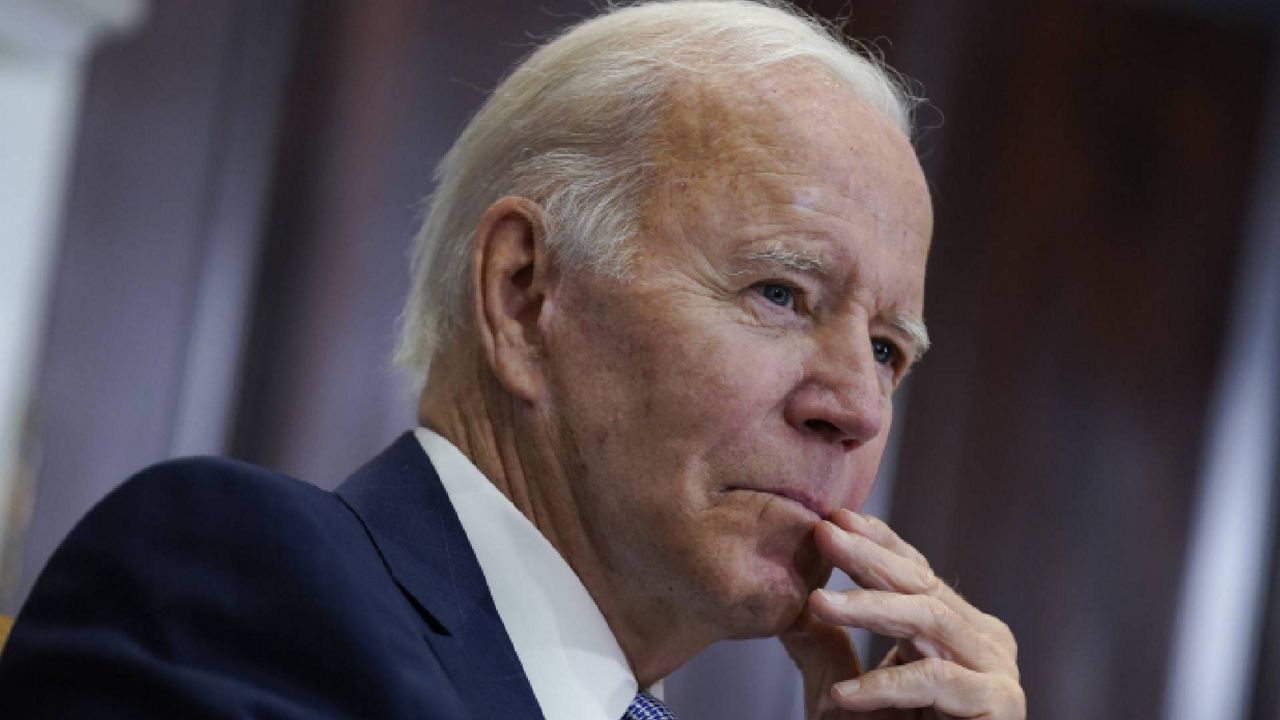Top health officials on Friday told state governors that women who require an abortion in medical emergencies cannot be denied care, no matter what the state’s law says about terminating a pregnancy.
Health and Human Services Secretary Xavier Becerra and Centers for Medicaid and Medicare Services Administrator Chiquita Brooks-LaSure sent a letter to governors to reinforce the administration’s interpretation of a federal statute that they say should protect doctors’ ability to treat pregnant women in emergency situations.
"There have been many reports nationwide of delays or denials of health care that have put women’s health and lives at serious risk," they wrote. "We are closely monitoring these reports and will take action to help ensure access to care."
The issue centers around the Emergency Medical Treatment and Labor Act (EMTALA).
President Joe Biden on Friday also stopped by a meeting of local officials at the White House to discuss reproductive rights. Attendees included Mayor Elaine O'Neal of Durham, North Carolina, Mayor Shawyn Patterson Howard of Mount Vernon, New York, and Judge Lina Hidalgo of Harris County, Texas.
"What is going to happen is the American people will make it happen in November," Biden said, referring to the potential turnout of Democratic voters in this fall's midterm elections.
"You're going to hear women roar on this issue," he added.
Hidalgo told Biden that, because of Texas abortion restrictions, "a woman in Houston would have to travel 600 miles to get to the nearest abortion clinic in New Mexico."
The Texas law includes no exceptions for medical emergencies. And a judge there ruled this week against the Biden administration's guidance around EMTALA, which would require Texas hospitals to provide abortion services if the health or life of the mother is at risk.
"I speak for the majority of Texans when I say this law has no place," Hidalgo added, Biden responding: "I think you speak for women all over America."
On the opposite hand, a separate judge said that Idaho’s ban on abortion could not be enforced in medical emergencies, citing EMTALA.
The letter from Becerra and Brooks-LaSure lays out for governors the consequences of violating the statute, which could result in a medical provider losing its Medicare and Medicaid agreements and being fined.
"States should carefully examine their laws and regulations to ensure that they conform to the obligations described in the federal laws referenced above," Becerra and Brooks-LaSure wrote Friday.
A now viral video posted on Twitter shows a South Carolina lawmaker who supported restrictions on abortion get emotional when he described the fate of a 19-year-old pregnant woman whose water broke early, the fetus becoming unviable.
But because it had a heartbeat, a doctor said, lawyers said the girl could not have the fetus removed, and they sent her home.
The result: The girl has to deliver the fetus. She has a 50% chance of losing her uterus and a 10% chance of developing sepsis and dying, said Rep. Neal Collins at a State House committee meeting.
“That weighs on me,” he said. “I voted for that bill. These are affecting people.”
HHS on Friday also released a report that was called for in an executive order last month, titled "Health Care Under Attack: An Action Plan to Protect and Strengthen Reproductive Care."
It outlines the agency’s efforts so far to protect reproductive rights, including to expand medication abortion, protect access to contraception and launch other outreach efforts.
The report includes, for example, guidance for pharmacies and more information on HHS’ upcoming efforts to protect women’s health data privacy in the context of abortion bans.



